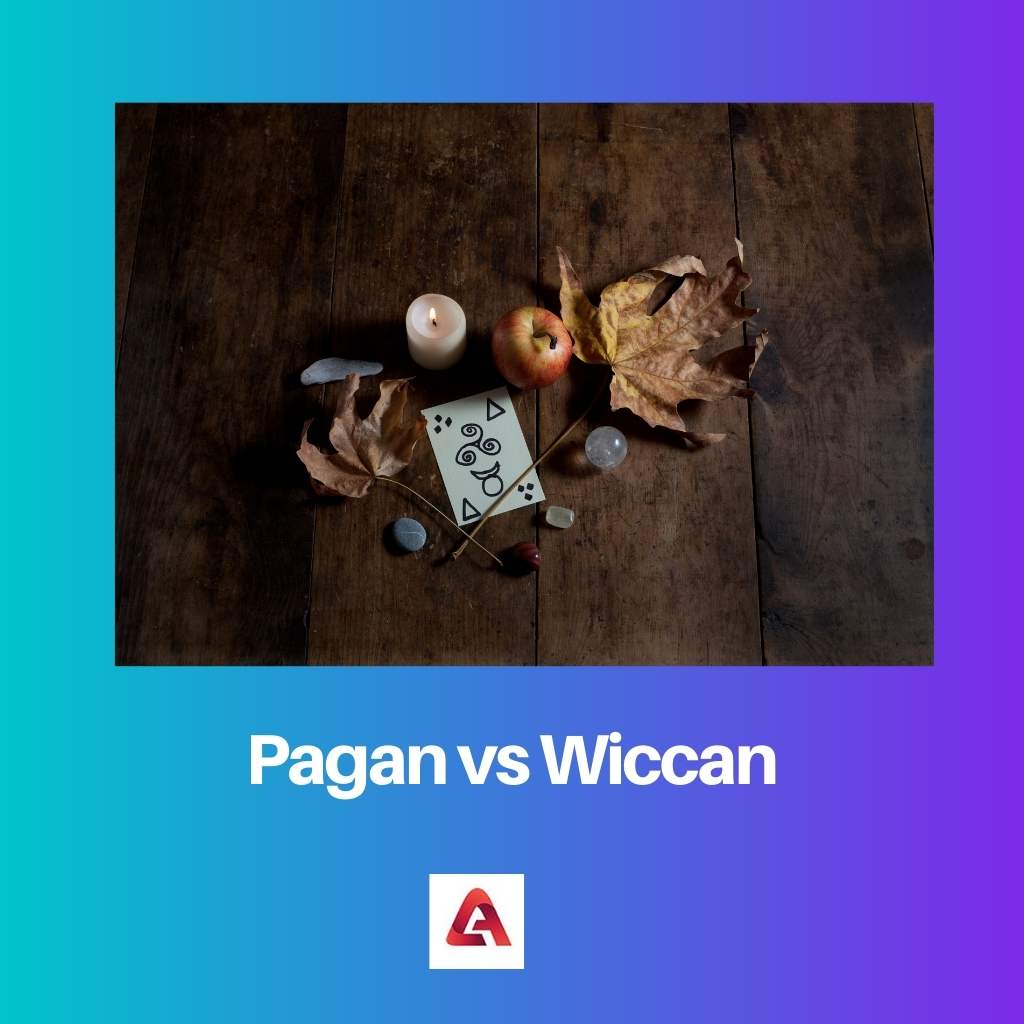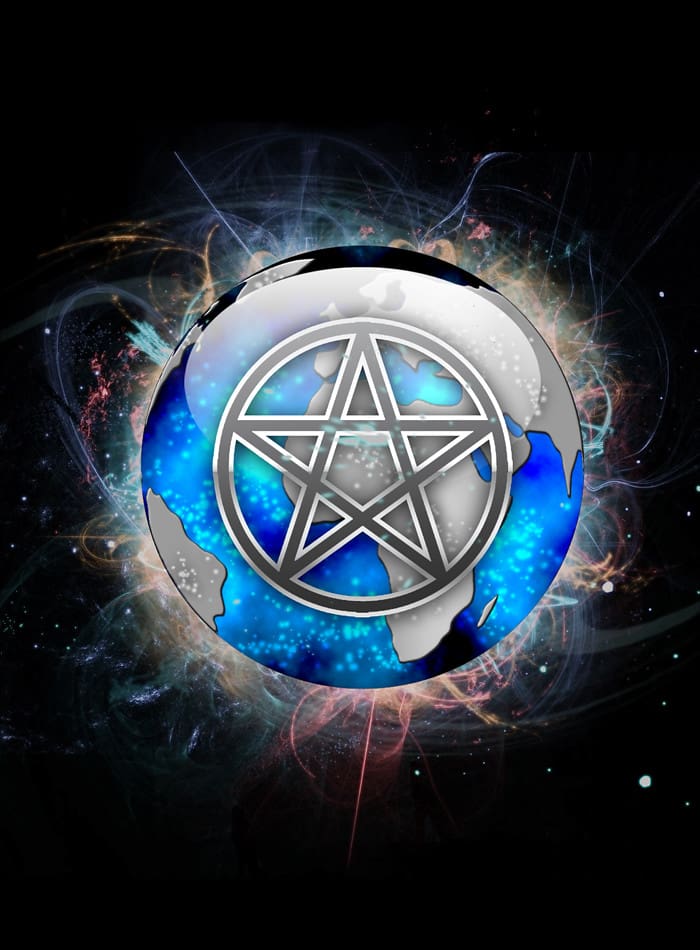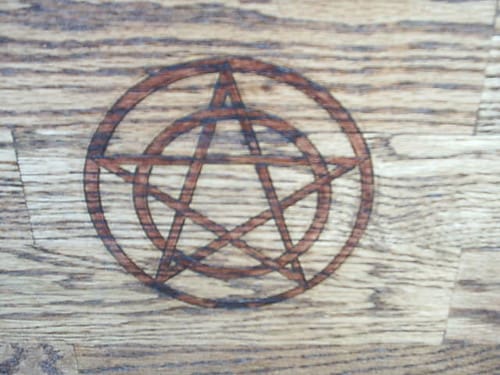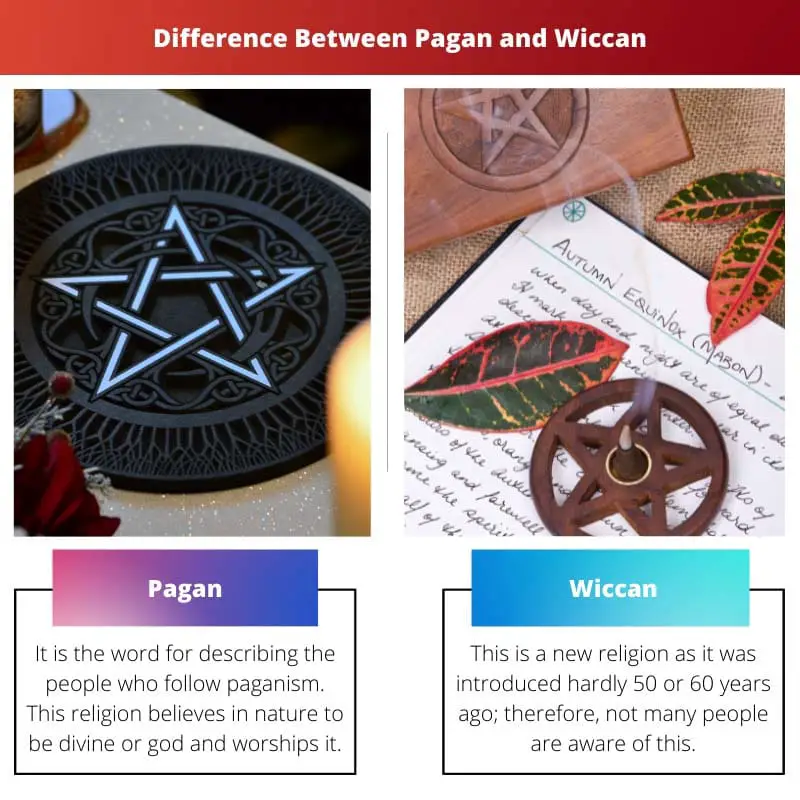There are many religions and beliefs people follow in the world. Some of them are new. Some might be the oldest. These beliefs give them their identity and teach their way of living.
Most of the time, in a family, a single religion or belief is followed by all the members, but sometimes members can also have different beliefs and religions. Anyone can change their religion at any time in their entire life.
An example of a religion that has been followed for a long time is paganism. It is a spiritual religion followed by many people all around the world. Sometimes this is confused with other religions known as Wiccan.
Key Takeaways
- Pagan is an umbrella term for any non-Abrahamic religion, while Wicca is a specific neo-pagan religion centered around worshipping a goddess and a god.
- Paganism can include a wide range of belief systems, while Wicca is a specific set of beliefs and practices.
- Paganism has been practiced for thousands of years, while Wicca was founded in the mid-20th century.
Pagan vs Wiccan
A pagan is a term that is used to describe an individual that follows paganism as a spiritual religion and believes in the presence of one or multiple gods. A Wiccan is a new religion that was founded by Gerald Gardner, and it allows individuals to believe in multiple gods at the same time.

A Pagan is a person following paganism, a spiritual religion. The term was introduced in the early 4th century by some Christians. This is a very broad religion that is further divided into many other religions.
These religions may include worshipping one god or worshipping many gods. There are many traditions and rituals included in the religion that has to be followed by everyone. A few examples of religions that come under paganism are Wiccan and witchcraft.
Wiccan is also a spiritual religion influenced by the pagan Gerald Gardner in the earlier 1900s, who came across the word Wicca and later on introduced this religion.
He was himself a follower or a member of the society of pagans. This religion only believes in worshipping two gods. This includes rituals and traditions that are the same as pagan.
Comparison Table
| Parameters of Comparison | Pagan | Wiccan |
|---|---|---|
| Connection | All pagans are not Wiccan | Wiccan is always pagan |
| Gods | Believe in one or many gods | Believe in two gods |
| Introduced | Earlier | Later |
| Witchcraft | They don’t perform it | They perform it |
| Founder | No such founder | GERALD GARDNER |
What is Pagan?
It is the word for describing the people who follow paganism. This religion believes in nature to be divine or god and worships it. This religion is comprised of many other religions.
During earlier times, when paganism was new, and Rome turned to Christianity, the tension between Christians and pagans began growing. But still, paganism lived on. The Olympics used to be a pagan ritual. It is based on pre-Christian beliefs.
People following paganism sometimes choose a specific path to follow other religion that comes from other pagan, such as Wicca, witchcraft, Druidry, Asatru, etc., while others do not remain pagan only.
Many of the old traditions of pagan have been reconstructed to give more importance to the original traditions and beliefs. Besides gods and goddesses, pagans also worship spirits that can be national heroes, as well as deceased family members.
It also includes atheists, as they focused on worshipping nature. Anyone who is involved in any religious act, ceremony, or practice which is not Christian can be a pagan.

What is Wiccan?
This is a new religion as it was introduced hardly 50 or 60 years ago; therefore, not many people are aware of this. But this is spreading like a wind. A person cannot be a Wiccan unless he is a pagan. It is known as Wicca.
Wiccan goes for the people who follow it. It is a duotheistic religion, which means they believe in the combination of two gods, a god and a goddess. The god is called Horned, and the goddess is called the mother goddess.
The goddess is associated with the earth, stars, and moon, while the god is associated with forests, sun, and animals. This religion is tied with the pagan and therefore has several traditions and festivals known as Sabbats.
Most of the Wiccan also follow witchcraft and perform magic with the help of nature’s powers, using five elements, earth, wind, water, fire, and spirit.
The main holidays under this religion are Beltane (Fertility. Crops), Litha (Summer Solstice), Yule (Winter Solstice), Lughnassad (Harvest), Mabon (Autumn Equinox), Imbolc (Brigid’s Day), Ostara (Spring Equinox), Samhain (Spirits and winter).
This religion has changed a lot, and some argue that the new Wiccan is nothing like the original.

Main Differences Between Pagan and Wiccan
- The main difference between pagan and Wiccan, which sometimes even creates confusion, is that pagan is a broader term or main religion, and Wiccan is a part of it. Therefore, to be a Wiccan, a person needs to be a pagan first. While being a pagan, it is not necessary that the person has to be a Wiccan. It is their choice.
- Both of them believe in gods, in pagan, different people believe in several types of gods, some might worship one god while others worship many gods, it is because there are other religions included in the pagan and sometimes atheists are also included in the pagan whereas in Wiccan people follow two gods, horned god, and mother goddess.
- Pagan was introduced early, there is no exact date of when it was actually introduced, but it is believed that it first came to the notice in the 4th century by some Christians, whereas Wiccan was introduced later on in the middle of the 1900s.
- There is no actual name of a person who introduced paganism, whereas Wiccan was first introduced by Gerald Gardner, who was a follower or a member of pagan society, until he came across the word Wicca and then founded Wiccan.
- Both of them are also related to witchcraft, as it is included in the pagan. Most of the Wiccans perform witchcraft, whereas most of the pagans are not included in the witchcraft activities.



